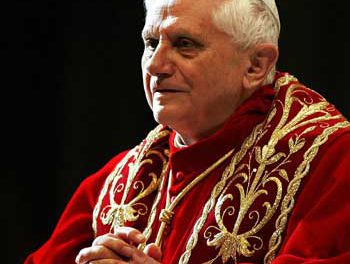 The Golden Compass, an atheistic novel and anti Christian propaganda which is now a block buster movie has hit box office. According to Reuters it whooped up a $29 million from 44 territories, taking its total to $90 million after two weekends. It retained the lead in Britain ($6.3 million; market total, $25.2 million), Germany ($3.3 million; market total, $9.2 million), and Spain ($3 million; market total $11.5 million) for a second week (from December 7, 2007). Sakshi Research team cites a few of its problems and gives resources to good links.
The Golden Compass, an atheistic novel and anti Christian propaganda which is now a block buster movie has hit box office. According to Reuters it whooped up a $29 million from 44 territories, taking its total to $90 million after two weekends. It retained the lead in Britain ($6.3 million; market total, $25.2 million), Germany ($3.3 million; market total, $9.2 million), and Spain ($3 million; market total $11.5 million) for a second week (from December 7, 2007). Sakshi Research team cites a few of its problems and gives resources to good links.
The Golden Compass: A Cowardly Caricature of Christian Faith
The Golden Compass, first from the trilogy of "His Dark Materials,"(the second book is "The Subtle Knife" (1997) and third "The Amber Spyglass" (2000)), unfortunately is a cowardly and malicious attack on the Judeo Christian faith. Cowardly because Pullman the author would dare to take this liberty of scorning only with names scared to Judeo Christian (Jehovah) and not with others (why not Allah?). Malicious because it is a misrepresentation of Christian faith and not a critique of either the doctrines or practices.
We will save the space for synopsis and review what the scholars has to say.
Why it is important to reject the Golden Compass?
The Wall Street Journal gives an answer for that. In the article His Dark Material The unsubtle atheism of Philip Pullman's books, Leslie Baynes writes:
First of all, "His Dark Materials," unlike the Harry Potter series, is real literature and, as such, deserves serious attention. Mr. Pullman, a graduate of Oxford University with a degree in English, knows his stuff. The books are loaded with allusions to Greek mythology and philosophy, Milton, Blake and the Bible, with images ranging from the obvious (the Garden of Eden) to the obscure (the bene elim, or angelic Watchers mentioned in Genesis 6:1-4). These allusions, unlike the throwaway Latinisms of Hogwarts' spells, drive the plot, characters and themes of Mr. Pullman's series. Indeed, a child who investigates them would begin to gain the rudiments of a classical education.
Moreover, again in contrast to J.K. Rowling's books (which were criticized by some Christians for their use of magic and witchcraft), Mr. Pullman's series is bluntly anti-Christian. In the third book, "The Amber Spyglass," a former nun tells the two child protagonists, Lyra and Will, that "the Christian religion is a very powerful and convincing mistake, that's all." The church and its members do nothing but evil.
The main problem with "His Dark Materials," however, is not the atheism per se but rather its mindless dogmatism. There is no such thing as an open-minded Christian in the series. Take this quote from "The Amber Spyglass": "I met an angel. . . . She said that all the history of human life has been a struggle between wisdom and stupidity. She and the rebel angels, the followers of wisdom, have always tried to open minds; the Authority and his churches have always tried to keep them closed." To be fair, Mr. Pullman himself noted in a 2000 interview that this one-sided portrayal is "an artistic flaw," but there it is nonetheless. (The Wall Street Journal, December 14, 2007).
Why the portrayal of Church is wrong?
A blogger at http://richleonardi.blogspot.com/2007/11/great-fodder-for-discussion.html writes:
As I read the books the first time, I began to be very uneasy with this portrayal of the church. There is no pope in this church, no priests, no sacraments, no pastoring. But there’s no doubt that it is meant to be a version of the Roman Catholic Church, and I struggled with whether the books were actively anti-Catholic and anti-Christian. But as I kept reading and thinking, I realized that crucial elements were missing from the “church” of Pullman’s books: Salvation, forgiveness, redemption, love, and the Good News of Jesus Christ. Without these elements, it can’t properly be called a Christian church of any kind.
The “church” of the novels is a kind of caricature of the excesses of the medieval Catholic Church, which in some of its darkest hours forced Galileo to recant his astronomical observations and tortured suspected heretics during the Inquisition (sometimes by waterboarding them). The Roman Catholic Church has since acknowledged its error in the Galileo matter and apologized for its treatment of the Jews and others in the Inquisition, as well as enacting substantial Reformations over the last several hundred years. While I recognize in it some of the trappings of the Catholic Church of long ago, Pullman’s “church” is no more like the Church I know and love than Stalinist Russia is like the U.S.A.
An Invert Caricature of True God: Why it is wrong?
Tom Gilson, in his article An Emboldened Compass writes: Pullman’s God is rather pathetic character, tired of all the responsibility, “half-crazed with age and infirmity,” in SparkNotes’ words. He had been rather mixed up about things all along, though. The Satan figure in the trilogy was the one who brought freedom to humans. God—and the dominating, violent, fearful church—fought against this freedom. Pullman cheers for their downfall. He has said so not only in his fiction, but also in interviews. The books, he says, are “about killing God.”
Pullman’s God is fictional, and we must hasten to note that the actual G
od is not concerned about death threats that might be made against Him.
Epilogue: A Gentle and True Response to Harsh and False Critic
We would like to show a gentle response to this malicious attack. The Anglican Bishop N T Wright wrote in his article ‘Jesus and the Identity of God this: For seven years I was College Chaplain and Worcester College, Oxford. Each year I used to see the first year undergraduates individually for a few minutes, to welcome them to the college and make a first acquaintance. Most were happy to meet me; but many commented, often with slight embarrassment, “You won’t be seeing much of me; you see, I don’t believe in god.”
I developed stock response: “Oh, that’s interesting; which god is it you don’t believe in?” This used to surprise them; they mostly regarded the word “God” as a univocal, always meaning the same thing. So they would stumble out a few phrases about the god they said they did not believe in: a being who lived up the in the sky, looking down disapprovingly at the world, occasionally “intervening” to do miracles, sending bad people to hell while allowing good people to share his heaven. Again, I had a stock response for this very common statement of “spy-in-the-sky” theology: “Well, I’m not surprised you don’t believe in that god. I don’t believe in that god either.” At this point the undergraduate would look startled.
Then, perhaps, a faint look of recognition; it was sometimes rumored that half the college chaplains at Oxford were atheists. “No,” I would say; “I believe in the god I see revealed in Jesus of Nazareth.” What most people mean by “god” in late-modern western culture simply is not the mainstream Christian meaning.
To Pullman and all his atheistic friends, one gentle response is- we do not believe in such a god as portrayed in your writings. We believe in the God who was revealed through Jesus Christ.
For Further Reading
- Will your kid discover his personal 'daemon'?
- CULTURE: Atheism for kids
- Christian Response and Reaction to Pullman and His Dark Materials: the Golden Compass, the Subtle Knife, The Amber Spyglass
- The Golden Compass (This has a review and many links to good resources.)
- An Emboldened 'Compass' ( A good evangelical review and has links to good resources)
{moscomment}





